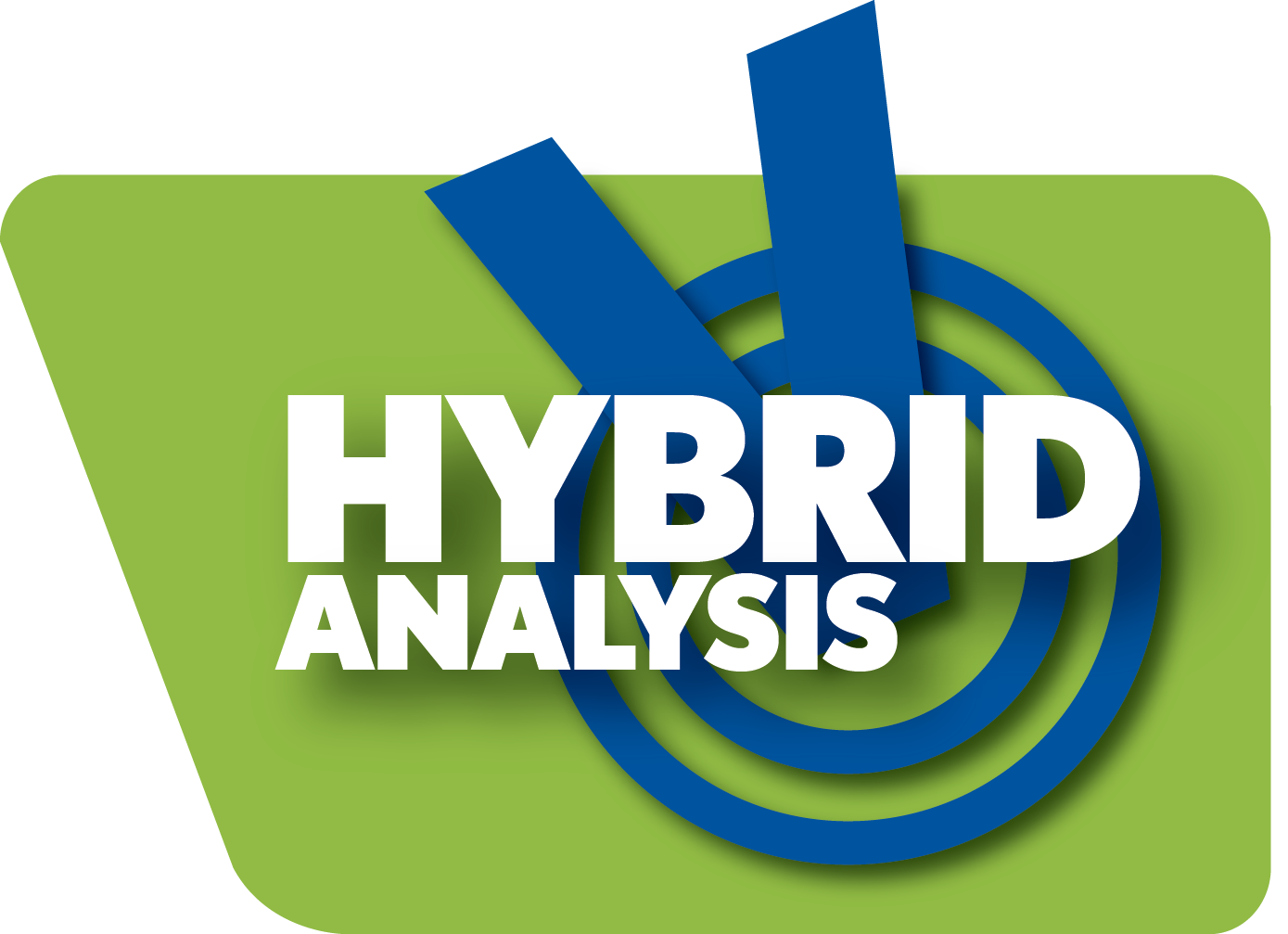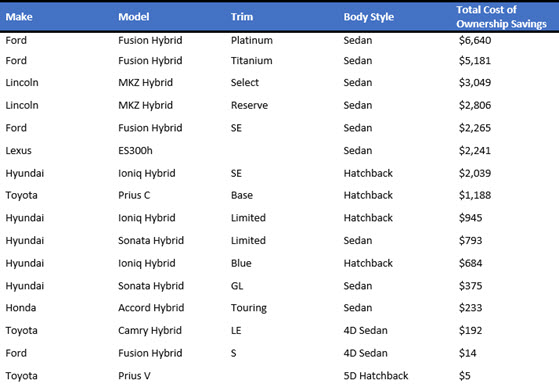EXECUTIVE SUMMARY

The Vincentric Canadian Hybrid Analysis provides consumers and the automotive industry with information regarding the cost of owning a hybrid vehicle in Canada compared to its closest all-gasoline powered counterpart. The 2018 results showed that 16 of the 47 hybrid vehicles analyzed (34%) offered a lower total cost of ownership than their closest all-gasoline powered equivalent.
The 47 available hybrid vehicles were categorized into either Passenger Cars (37 hybrids) or SUV/Crossovers (10 hybrids). Of the passenger cars, 16 of 37 (43%) were found to be cost effective while none of the hybrid SUV/Crossovers could make that claim.
The average price premium for a hybrid vehicle was $7,121 more than its all-gasoline powered counterpart. Although hybrids had an average fuel savings of $3,051 and average maintenance cost savings of $576, the average total cost of ownership for hybrids was still $3,449 more than the all-gasoline powered equivalents.
COST OF OWNERSHIP COMPARISON
The Vincentric Canadian Hybrid Analysis demonstrates that in addition to improved environmental benefits of hybrids, a financial case can be made for the purchase of these 16 cost-effective hybrid vehicles. The chart below shows the best performing hybrid trim level from the top three hybrid passenger car models compared to their closest all-gasoline powered equivalent.

Note: There is not a similar chart for SUV/Crossovers because none of the SUV/Crossovers analyzed had cost of ownership savings when compared to its all-gasoline powered counterpart.
The complete list of sixteen cost-effective hybrids is shown below.


Please contact customer.service@vincentric.com to discuss receiving and licensing the complete analysis results.
CONCLUSION
All 47 hybrids analyzed had a higher market price than their all-gasoline alternative, which causes several cost factors to increase including depreciation, fees & taxes, interest, and opportunity costs. Despite the higher purchase price, certain hybrids are still cost effective. It's important for buyers to look at their needs and the specific models available because depending on the negotiated price, driving patterns, and intended length of ownership a hybrid can still be a smart financial choice.
ABOUT THE CANADIAN HYBRID ANALYSIS
The Vincentric data team prepared the report to help users understand the financial dynamics of owning a hybrid using automotive cost of ownership as the metric. Factors analyzed included depreciation, fees & taxes, financing, fuel, insurance, maintenance, opportunity cost, and repairs.
Fuel prices used in the study were based on a weighted average over the previous five months rather than the exact prices you might see at a gas station today. This was done to ensure that the analysis reflects current market trends and not market extremes.
The report assumes the vehicle is owned for five years with 15,000 kilometers driven annually. The numbers shown are Canadian averages, however, the same analysis can be done for any province plus the Northwest Territories. The results of the study are forecasts of future results. Actual results will vary from these forecasted results.
To be notified when additional special studies are prepared by Vincentric, please join our news list or you can follow us on Facebook, LinkedIn or Twitter.

To view the press release regarding the 2018 Vincentric Canadian Hybrid Analysis, click here.
|

If you are interested in learning more about other Industry Reports from Vincentric,
click here
|